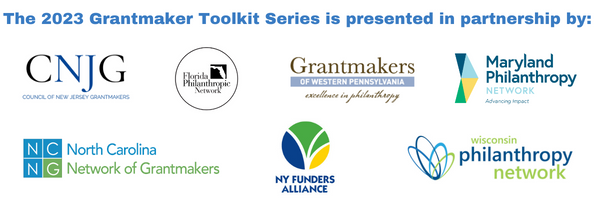Site Search
- resource provided by the Forum Network Knowledgebase.
Search Tip: Search with " " to find exact matches.
The FirstEnergy Foundation awarded more than $3.43 million to nearly 100 organizations across its six-state service territory for the final round of "Investing with Purpose," an initiative focused on supporting nonprofit organizations that advance health and safety, workforce development, educational and social justice initiatives. In addition, FirstEnergy Corp. (NYSE: FE) provided $220,000 to five organizations as part of the initiative. The grants build on $3.3 million in charitable contributions the Foundation awarded in December 2020 as part of the initial round of giving, which has collectively gifted $7 million to nearly 200 nonprofit organizations making a difference in the communities served by FirstEnergy's 10 electric companies.
"Investing with Purpose" was developed in response to the COVID pandemic, which created health, financial and educational hardships for customers across FirstEnergy's footprint, and in response to the events of 2020 that highlighted racial and social injustices impacting our nation. With those issues in mind, the Foundation identified philanthropic opportunities through nonprofit organizations across its service territory that are responding to needs of vulnerable populations. The "Investing with Purpose" initiative represents an additional commitment on top of the company's annual charitable giving, which averages approximately $10 million per year.
"Many of our communities are still facing a significant hardship due to the pandemic. Nonprofit organizations on the frontline of our current health and economic crisis have realigned to support current needs in the community, including housing, workforce development and training, and the continued support of our healthcare workers," said Lorna Wisham, vice president of Corporate Affairs & Community Involvement and president of the FirstEnergy Foundation. "We've witnessed the positive impact these grants made for deserving organizations in 2020, and we look forward to seeing how the second round of contributions will help strengthen the communities we serve."
Foundations Facilitate Diversity, Equity, and Inclusion: Partnering with Community and Nonprofits, a new report by the OMG Center for Collaborative Learning, confirms that foundations can, in fact, facilitate diversity, equity, and inclusion (DEI) through their grantmaking processes and their partnerships with nonprofits—and identifies eight specific practices for foundations to emulate.
The report takes a deep dive into the work of nine foundations that represent a diverse cross-section of types and sizes, and offers useful lessons about how foundations can better partner with nonprofits to be more effective in their work.
- Frequent moves are the most significant barrier to academic success, as they disrupt both students and teachers. Students on the move need extra time and attention to get caught up, requiring teachers to spend more time with those students.
- Students who are unable to find stable shelter have difficulty meeting state or district mandates regarding the number of days they must attend school to stay enrolled.
- Often, the slow transfer of student records, along with differing course requirements from school to school, complicates the accrual of sufficient credits for homeless students to be promoted and receive a high school diploma.
A CNJG member received an application from a school district, and wanted to know if others granted funds to a school district, and what other funders learned from granting to a district.
This one-hour webinar will offer a high-level overview of recent trends and best practices for foundation governance. Attorneys from the Nonprofit and Tax-Exempt Organizations group of Dentons, the world’s largest global law firm, will present practical tips for governance and legal compliance, focused on small to mid-size foundations. Drawing from both national trends in the industry and the impact of the pandemic and social change, topics will include:
- Considerations for revising bylaws and conflict of interest policies;
- Foundation political activity, including lobbying and advocacy;
- Issues to consider when funding a project with a fiscal sponsor; and
- Updating grant agreements.
Speakers
| Jeffrey Fromknecht Counsel Dentons Cohen & Grigsby |
Hayley Haldeman Counsel Dentons Cohen & Grigsby |
This program is for members of the following philanthropy-serving organizations: Maryland Philanthropy Network, Council of New Jersey Grantmakers, Florida Philanthropic Network, Grantmakers of Western Pennsylvania, Philanthropy Wisconsin, NY Funders Alliance, and North Carolina Grantmakers.
This program is presented in partnership with the Maryland Philanthropy Network. As the number of organizations in funder portfolios who are undergoing a leadership transition grows, many common practices of funders, including a “Wait and see” approach, are failing organizations just when they need extra support. Given the deeply destabilizing impact of transitions and the steep increase in volume of transitions, it is more important than ever that funders embrace transitions as a normal yet fragile part of the organizational life cycle. Further, funders can develop better strategies for supporting leadership transitions involving BIPOC leaders.
Join this values-driven and action-oriented session with Leading Forward to learn from social sector professionals who are leaning into trust - and leaning into the change - with new strategies to support leaders who are leaving, leaders who are entering, and the board and staff who manage the change from old to new.
Session take-aways:
A framework and set of principles to rely on when building out grantmaking programs and cohorts related to leadership transitions for your grantees.
Deeper understanding of the unique challenges of BIPOC leadership transitions as well as the current context (large number of transitions, shorter tenures for leaders, etc.).
Practical considerations for how to approach conversations about leadership transitions with your grant partners.
Strategies and tactics for supporting organizations before, during, and after leadership transitions, particularly transitions involving BIPOC leadership.
Speakers
Amalia Brindis Delgado, Chief Strategy Officer for the Panta Rhea Foundation
Ai Lun Ku, Principal of AiLun Ku Consulting, LLC
Sabrina Thornton, Program Officer, Creativity and Innovation for the T. Rowe Price Foundation
Lisa Kane, President of Firefly Advisors
COST: Free for CNJG Members and Non Member Grantmakers
This program is presented in partnership with the following philanthropy-serving organizations: Maryland Philanthropy Network, Council of New Jersey Grantmakers, Florida Philanthropic Network, Grantmakers of Western Pennsylvania, Wisconsin Philanthropy Network, and North Carolina Grantmakers.
"Co-Creation" is a case study about the Connecticut Early Childhood Funder Collaborative, a project of the Connecticut Council for Philanthropy. The case study, written by Patricia Bowie, examines co-creation, an emerging systems change collaboration model which grew out of a funder-and-state partnership. This unique partnership led to the creation by executive order of a new and independent Office of Early Childhood, which was formally approved by the Connecticut State Legislature in 2013. The companion piece, "Taking on New Roles to Address 21st Century Problems," looks at co-creation from the perspective of a regional association of grantmakers.
The Connecticut Early Childhood Funder Collaborative comprises 14 funders from around the state who bring many years of experience in supporting and operating programs that serve the needs of children and families.




